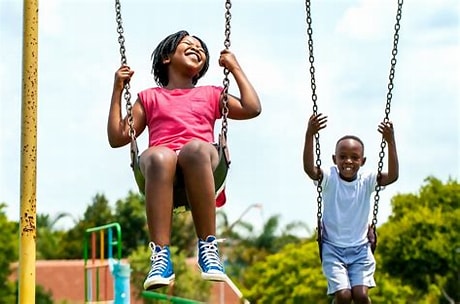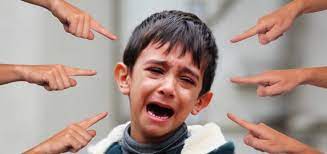
Do you have a child who loves to be active and playful all the time? If so, you’re not alone. It’s normal for children to have boundless energy and an enthusiasm for play. But when your child’s energy levels are so high that it’s hard to keep up, you may be wondering what to do.
In this blog post, we’ll explore some ways to channel your child’s extra energy into productive activities and help them learn to manage it.
Excessive playfulness can be a sign of ADHD
Attention Deficit Hyperactivity Disorder (ADHD) is a neurological condition characterized by difficulty maintaining focus, impulsivity and hyperactivity. Children with ADHD often have difficulty sitting still, paying attention, controlling their behavior and following directions.
A child with ADHD may show excessive playfulness or fidgeting, seeming to move or talk constantly. They may be easily distracted and have difficulty paying attention to tasks, even if the tasks are fun or interesting. They may also be overly aggressive in play and not take the feelings of others into account.
It’s important for parents to be aware of signs of ADHD, as it can be managed through lifestyle changes and medication. If you are concerned about your child’s level of playfulness, it’s important to speak to your child’s doctor.
Playfulness can be a coping mechanism
Playfulness is a way for children to cope with stress, anxiety, and other difficult emotions. It can provide an outlet for these feelings and can be an important form of self-expression for children. Children may use play as a distraction from difficult circumstances or as a way to escape a situation. It can also help them to process their emotions in a more positive way. Play can be a safe way for children to explore their emotions, thoughts, and feelings without feeling judged. It allows them to think creatively, learn new skills, develop problem-solving skills, and practice healthy coping strategies.
By providing an outlet for difficult emotions, play can help children become more resilient and able to cope with stress in healthy ways.
Playfulness can be a sign of a happy childhood
It is important to recognize that excessive playfulness can be a sign of something more than ADHD. For children, playfulness can often be a sign of a happy childhood and healthy development.
When a child is able to express themselves through play, it often signifies a strong sense of self-esteem and a safe environment. Playful activities such as running, jumping, climbing, and imagining are all important parts of a child's development and help them to become more confident and independent.
Playfulness also helps children to cope with stress and difficult emotions. When children feel overwhelmed by their own emotions, playful activities can provide an escape from the situation and give them time to relax and release some of their emotions. This type of play can help to reduce stress levels in children and enable them to process their feelings in a more positive way.
Additionally, when children are allowed to explore their imaginations and create games of their own, it can foster creative thinking and problem solving. Children who are highly creative and imaginative often have higher levels of academic success and better social relationships. They also tend to feel more secure and accepted in their environments.
Overall, playfulness can be a sign of a happy childhood and healthy development for your child.
Allowing your child the freedom to explore their imagination through play can be beneficial in many ways and can help to build a strong sense of self-esteem and emotional well-being.
Excessive playfulness can be frustrating for parents
When your child is overly playful, it can be very frustrating for parents. It can lead to behaviors such as talking back, getting distracted easily, and making too much noise. This can be especially difficult if you are trying to get things done around the house or when trying to discipline your child.
It can also be hard to keep up with your child's energy levels. When your child is highly energetic and playful, it can be hard to keep up with them and give them the attention they need. This can leave parents feeling drained and overwhelmed.
It can be even more challenging if your child's behavior is disruptive to others. If your child is running around, being too loud, or bothering other children, it can lead to negative reactions from family members, friends, and strangers. This can put a strain on relationships and make it harder for your child to develop social skills.
Finally, it can be disheartening when your attempts to help your child manage their behavior don't seem to be working. It can be difficult to stay calm and find solutions that actually work in the moment.
It's important to remember that playfulness is a normal part of childhood, and excessive playfulness is often a sign of a happy and healthy childhood. However, it's also important to remember that excessive playfulness can be overwhelming and exhausting for parents. If you're feeling overwhelmed by your child's behavior, it's important to seek help from a professional. They can help you understand the underlying causes of your child's behavior and provide strategies for dealing with it effectively.
Ways to deal with a highly playful child
1.Set limits and enforce them consistently: Setting limits for your child is important in helping them understand what is acceptable behavior. Make sure you are consistent in enforcing these limits and that your child knows what the consequences are if they break them.
2.Encourage positive behaviors: It’s important to recognize and reward positive behavior, as this will help reinforce the behavior you want to see in your child.
3.Focus on activities that help them expend energy: A highly playful child may need more opportunities to expend their energy than other children. Find activities that will help them do this, such as playing sports, going for a walk, or playing an active game.
4.Redirect their attention: When your child is overly playful, try to redirect their attention to something else. Encourage them to focus on a project or activity that will occupy their time in a positive way.
5.Be understanding: Remember that your child’s playfulness isn’t a bad thing—it can be a sign of a happy childhood. Try to be understanding and recognize when it’s time to provide extra structure or attention.





















